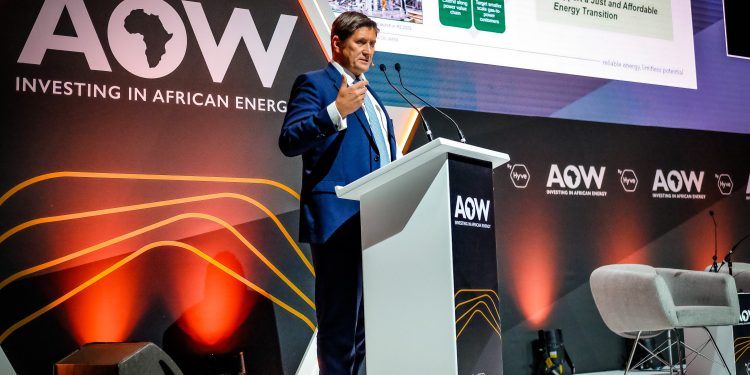.
Africa can harness its huge gas resources with minimal risks by blending domestic, regional, and international supply potentials to build roadmaps for a balanced gas monetisation strategy, the Chief Executive Officer, Seplat Energy Plc, Roger Brown, has said.
Brown spoke at the ongoing Africa Oil Week (AOW) in Cape Town during a panel session on “Monetising Africa’s Gas in the Next seven to 10 Years.”
“A blend of domestic utilisation, regional use and export of gas from Africa will maximise the benefits of gas to the continent with minimal risks,” Brown said.
“The United Nations Sustainable Development Goals also identified access to power as one of the key goals,” he said.
With a significant part of African nations still lacking access to electricity, the Seplat Energy CEO advocated the importance of African nations to develop the Continent’s abundant gas resources to promote domestic access to clean power, which would double to further the drive towards decarbonization.
Understanding of the current and potential domestic gas demands, he said, would underpin the roadmaps.
On a regional scale, he said the nations of Africa must also put in place the necessary infrastructures to transport and distribute gas within the region, ensuring the availability of affordable and reliable gas supplies to African nations.
This, he pointed out, would also help to promote intra-African trade, developments, and improved regional cooperation.
Gas exports to the international gas markets, he noted, would help the nations to earn foreign exchange inflows to support their developmental needs.
Also speaking on the panel session on the theme: “The Energy Industry Value Proposition – Amplification of the ‘S’ in ESG”, the Director External Affairs & Sustainability at Seplat Energy, Chioma Afe, said in driving a sustainable African continent, social issues around internal and external stakeholder management must be holistically addressed by operators or businesses in the energy space.
Afe said the issues around creating social opportunities for communities, infrastructural and human capital development, among others, should be the conversation,adding that it goes beyond the internal situation in the organisation.
“The whole idea is to have a more sustainable and truly diverse experience across board,” she said.
Seplat Energy also led the conversation on the role of affordable and reliable energy in providing the right platform for businesses in Africa to create and retain jobs for the Continent’s fast growing population.
During a Keynote session on the theme: “How Seplat is Driving Sustainability Through Energy Transition and Security in Nigeria”, Brown said up to 600 million Africans have little or no access to energy, because energy infrastructure remained poor and lacking the right investments.
“Affordable and reliable energy allows businesses to create jobs in Africa, giving the fast growing population a future in their country of birth, thereby avoiding mass migration,” he said.
Africa, he stressed, has the right to develop and must use its natural resources to do that, noting that the transition cannot be funded solely by debt or outsourced.




